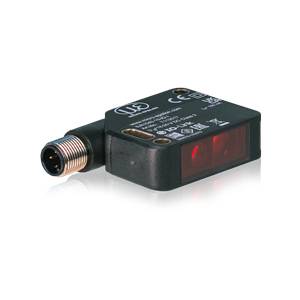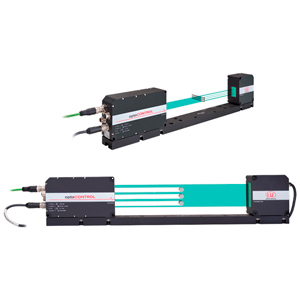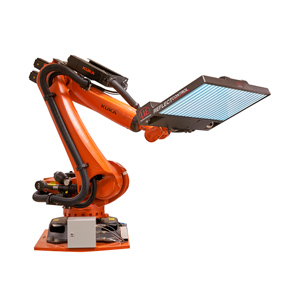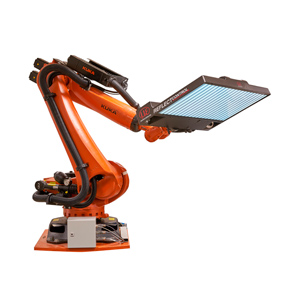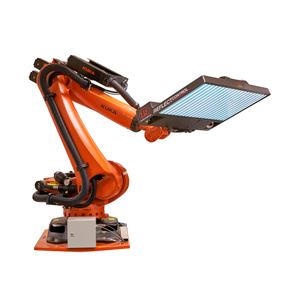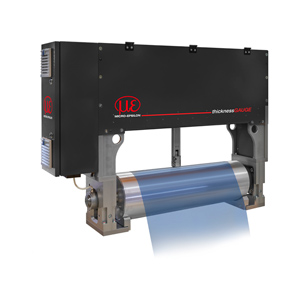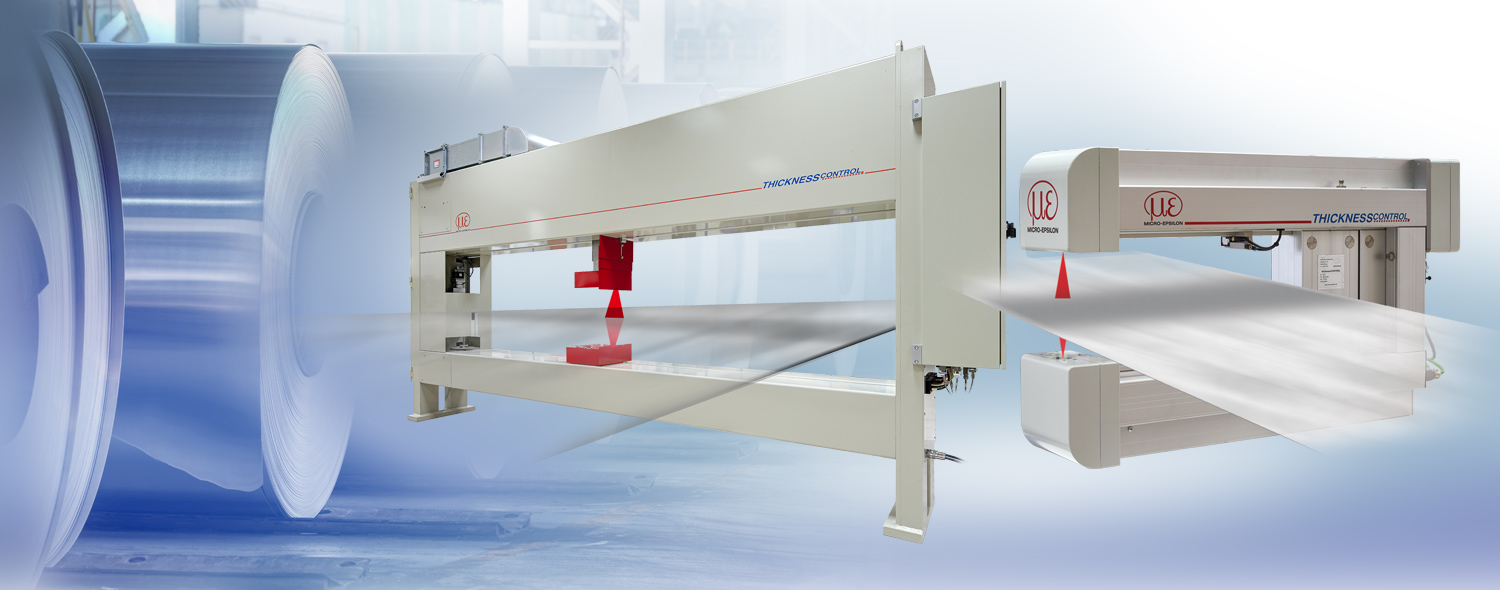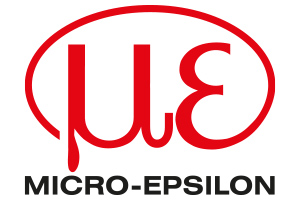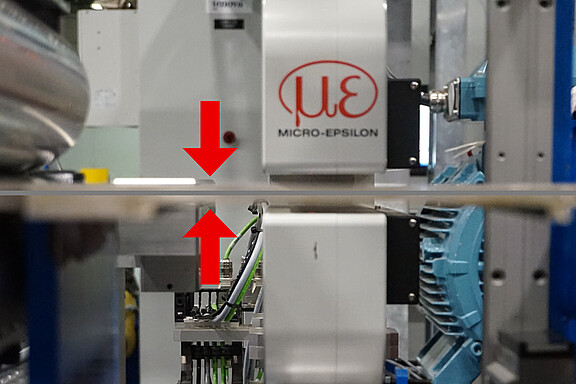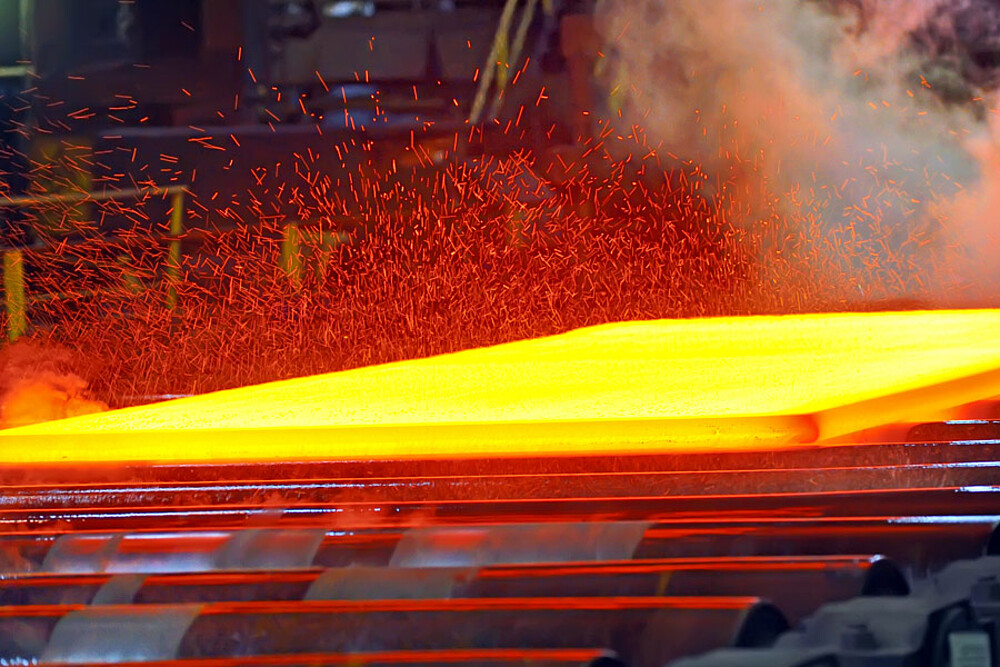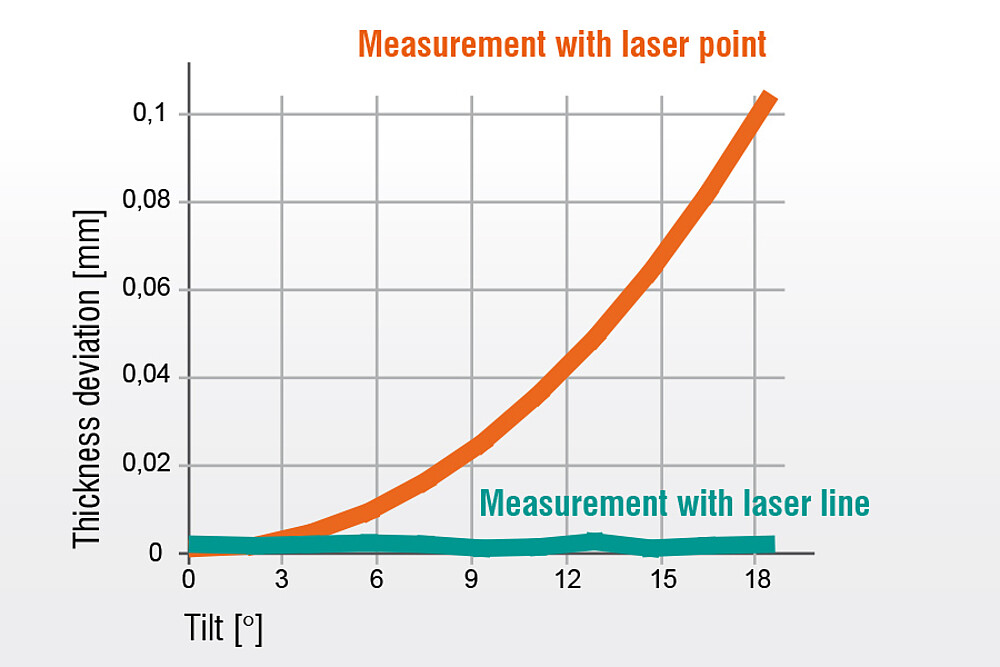Mät- och inspektionssystem för metallbearbetningsindustrin
Micro-Epsilon erbjuder innovativa mät- och inspektionssystem för mätning av tjocklek, profil och ytor inom stål- och aluminiumindustrin. Prestanda och kvalitet samt tillförlitlighet hos produkter och tjänster har gjort Micro-Epsilon till en av de ledande leverantörerna av inspektionssystem för optisk tjockleksmätning inom metallindustrin.
Våra beröringsfria system för tjockleksmätning används överallt där högprecisionsövervakning av tjocklek krävs vid kontroll och kvalitetssäkring. Både i varm- och kallvalsverk, i stränggjutningsanläggningar och servicecenter fungerar Micro-Epsilons mätsystem tillförlitligt och med maximal precision. Det har gjorts framgångsrika installationer i fräs- och bearbetningslinjer i 13 länder runt om i världen.
Operating principle of thickness measurement
The principle of dimensional, geometric thickness measurement includes one optical distance sensor on each side of the material. The distance (=operating range) of both sensors is determined in a calibration process based on a certified measurement standard of which the thickness is added to the sum of the sensor signals in order to determine the current operating range. For thickness measurement during production, the difference between the sum of the distance signals and the value of the operating range is determined.
Depending on the application, the thicknessCONTROL systems are equipped with non-contact sensor technologies. Laser profile sensors have proved particularly successful, offering numerous advantages and are used in a variety of applications.


Leading role due to laser profile measurements
The thicknessCONTROL measuring systems can be equipped with different sensor technologies. In the aluminum and steel industry, laser profile scanners are the preferred choice with numerous advantages.
Advantages of laser profile sensors
- Environmentally friendly alternative to radiometric thickness measurement
- Free of isotope and X-ray radiation
- No consequential costs caused by hazardous waste
- No special safety measures (laser class 2)
- High measurement accuracy, even in harsh environments
- Large and small material thicknesses
- Independent of alloys, no specific calibration required
Innovative "Discrete laser line"
By using special lenses, a laser beam is enlarged to form a static laser line and is projected onto the target surface. A high quality optical system projects the diffusely reflected light of this laser line onto a highly sensitive sensor matrix which detects during one measurement, depending on the sensor, a profile with 640 or 1280 measuring points. From this matrix image, the integrated controller calculates the distance information (z-axis) and the position alongside the laser line (x-axis) in a two-dimensional coordinate system.
Automatic thickness calibration
Micro-Epsilon’s optical thickness measurement methods are alloy-independent and can be operated without material-specific calibration. In order to compensate for the effects of temperature fluctuations and to increase the accuracy, the thickness measuring systems are equipped with an in-situ calibration. For this calibration, either the reference or calibration part is fed or the C-frame is positioned. In addition, the in-situ calibration can verify the proper functioning of the system at any time. The analysis software enables fully automated test equipment capability monitoring.













































